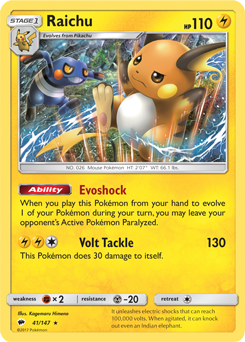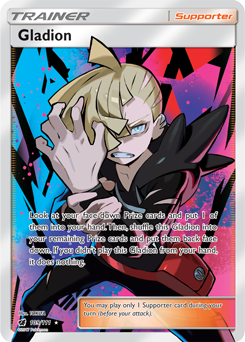The Degenerate Nature of Expanded
Hello PokeBeach readers! I’m back again after a bit of a PokeBeach hiatus, but I’ve still been playing as much as ever. It’s been an exciting year so far in the Pokemon Trading Card Game, and I think things are going to ramp up greatly in the next few weeks. Players are getting a sense of the level of effort necessary to achieve an invite this season. We have back-to-back Expanded Regionals coming up, featuring the new cards from the massive Lost Thunder set, and I’m stoked to perfect the Expanded lists I’ve been working on.
Our next big North American tournament, Anaheim Regionals, is just around the corner. As one of the few Regionals on the West Coast this season, I expect Anaheim to have a big turnout. I also think it could be either an extremely fun event or a miserable one. What do I mean by that? Well, the Expanded format at the moment features a heavy amount of non-interactive gameplay. On the one hand, you have wholesome decks that are generally interactive — things like Drampa-GX / Garbodor / Naganadel and Vespiquen / Flareon come to mind. To me, these decks represent the fun of Expanded: relatively slow setup, unusual old cards, and longer games that can be played in a variety of ways. Though you are doing everything you can to win, there is a back-and-forth exchange and your opponents are able to combat your deck with their own strategy.
Unfortunately, there’s a darker side to Expanded, and if Anaheim is going to be your first Expanded tournament, you may be in for a shock. Of course, I’m talking about the solitaire decks. The control decks. The decks that give you no way to disrupt their setup or even to play your own cards. These decks aim to limit your options and eventually lock you out of performing any gameplay actions whatsoever. No attacking, no retreating, no Supporters, no fun. Zoroark-GX Control comes to mind as the king of this degenerate side of Expanded, but today we will be talking about a couple of other decks you might see at Anaheim that can frustrate even the best of players. The decks I will be covering today are Glaceon-GX and Shock Lock.
Shock Lock

The first degenerate deck I’d like to discuss is an oldie but a goodie. After its release in Boundaries Crossed, Stoutland made no impact in the Standard format while it was legal. However, the card has found a niche in the Expanded format, albeit a small one. Although Stoutland has seen little play in Expanded, it’s performed fairly well when it has been played. Most notably, the card has been a favorite choice of two-time Worlds finalist and esteemed deck builder Ross Cawthon, who piloted Stoutland to a Top 16 finish at Dallas Regionals this past January.
Ross’s deck, featuring Stoutland paired with Raichu, is often referenced to as Shock Lock because it relies on the potentially infinite Paralysis lock you can achieve through looping Raichu and Devolution Spray. Shock Lock aims for a “complete” lock — one where the opponent is rendered unable to do anything at all, somewhat like modern Expanded Zoroark-GX Control lists — but goes about it in a different way. Whereas Zoroark-GX Control looks to reduce the opponent’s hand size, it at least allows the opponent to play Supporters and to attack, Shock Lock aims to prevent both the Supporter option and the attacking option altogether. The goal of the deck is to set up an Active Stoutland while spamming Devolution Spray to reuse Raichu’s Evoshock Ability to Paralyze the defending Pokemon every turn. Stoutland’s Sentinel Ability prevents the opponent from playing Supporters, meaning cards like Guzma cannot move the Paralyzed Pokemon out of the Active spot. The other purpose of Sentinel is to prevent your opponent from playing shuffle Supporters, so they cannot replenish their deck and will eventually deck out before you do. This lethal combination of Paralysis and Supporter lock, if it sets up, can shut down pretty much every deck in the format.
The ideal board state for Shock Lock is to have an Active Stoutland with Memory Energy attached and at least two Pikachu on the Bench. With this setup, you’ve established the Supporter lock and will always have at least one Pikachu to evolve into Raichu every turn. Ideally, the Active Stoutland will have evolved from Lillipup via Rare Candy; this lets Stoutland use Lillipup’s Pickup attack (with the effect of Memory Energy) to recover a Devolution Spray from the discard pile each turn. If for some reason you are unable to use Pickup, the deck plays three copies of Herdier, whose Treasure Hunt Ability lets you put an Item card from your discard pile into your hand.
Card Explanations

One aspect of Shock Lock that I love is that the Lillipup, Herdier, and Stoutland were each released in different sets, years apart, yet they share a unique synergy in the deck. We know Stoutland is the superstar, with Sentinel being one of the main reasons this deck works at all, but Lillipup is also a key player. Herdier is less important, but it still improves the deck’s consistency and can find you a critical card in a pinch. There may be times where you need an additional Item for a combo or you’ve discarded a crucial Item with Ultra Ball or Computer Search, but you either can’t find a Memory Energy, or need the Item before your attack. Herdier ensures that these scenarios don’t result in an outright loss.
Raichu is the other key Pokemon that helps achieve the deck’s lock. It is important to always have two Pikachu on the field so that when you devolve a Raichu, you can play it onto the other Pikachu to maintain Paralysis. Giving your opponent even one turn to attack can be hugely detrimental. Cards like Articuno and Zorua can leave your Stoutland Asleep or Paralyzed, or Drampa-GX can discard your Memory Energy — in both cases preventing you from using Pickup.
One of the best consistency cards in this list is Tropical Beach. Since you typically will not attack in the early game, Tropical Beach functions as an additional draw Supporter. It also serves as a counter to other Stadiums such as Silent Lab or Brooklet Hill. However, Tropical Beach’s high cost serves as the limiting factor to Shock Lock’s widespread play (other than the skill level required to set up the lock). With the Worlds-promo-exclusive card hovering at about $200 a pop, Shock Lock is not for the Pokemon Master on a budget. (That said, if you perform well with the deck, you can make a significant return on your investment…)
Stoutland is helped immensely by some cards from newer Sun and Moon-block sets. One of the most important is Memory Energy. This card allows the deck to be more streamlined. In previous iterations of the deck, Celebi-EX (and later Shining Celebi) was used to give Stoutland access to Pickup. With the release of Memory Energy, we can save ourselves both a Bench spot and a couple of deck slots.
Ditto Prism Star can also help streamline your setup. It can evolve into a Raichu or a Herdier, and even allows you to play Alolan Muk. Grabbing Ditto off of an early Brigette ensures that you’ll have a variety of setup options on the next turn.
Gladion is another fantastic new addition. Shock Lock has a lot of moving pieces that all need to fit together, but what happens if something you need is Prized? This deck almost never does damage, so you probably can’t fish that card out of your Prizes by taking Knock Outs. Gladion gives you access to one of your Prizes, preventing bad RNG from ruining a large number of your matches. Before Gladion was printed, you would be forced to run extra copies of key cards like Celebi-EX and AZ, but with Gladion, you can cut down to one copy of each without fear of losing it to poor prizing.
This concludes the public portion of this article.
If you'd like to continue reading, consider purchasing a PokeBeach premium membership! If you're not completely satisfied with your membership, you can request a full refund within 30 days.
Each week we post high-quality content from some of the game's top players. Our article program isn't a corporate operation, advertising front, or for-profit business. We set our prices so that we can pay the game's top players to write the best content for our subscribers. Each article topic is carefully selected, goes through multiple drafts, and is touched up by our editors. We take great pride in our program!

